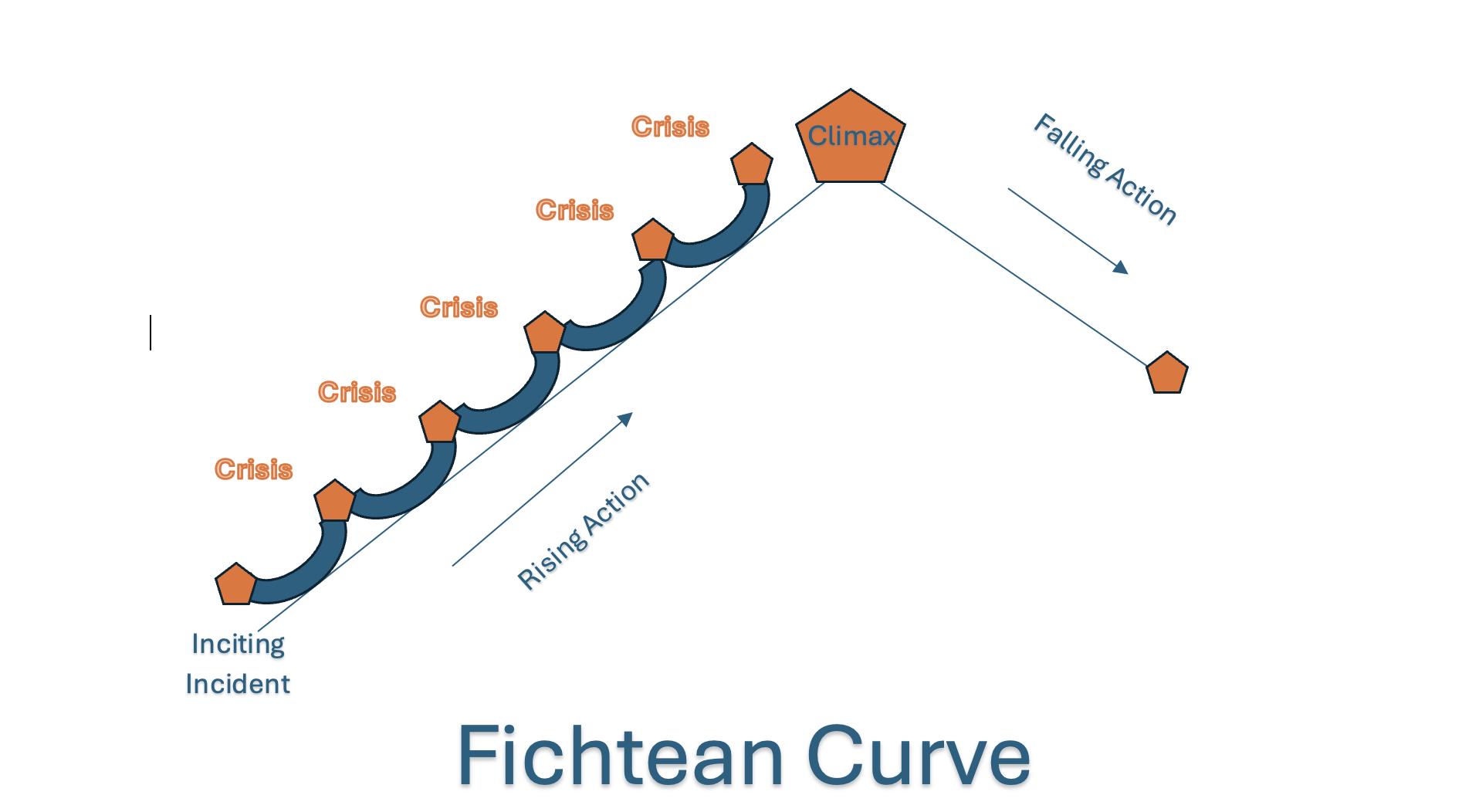Book Review of “The Water Keeper”
Amazon Affiliate Disclosure
Pauline J. Grabia participates in the Amazon Services LLC Associates Program, an affiliate advertising program, and earns from qualifying purchases from links in this post.
Please subscribe to my email newsletter for updates on my website and blog. You can do so in the form found in the footer of this page. Thank you!
Introduction:
Writing this book review of The Water Keeper by Charles Martin was daunting, not because the book was horrible and unreadable but because the absolute opposite was true. I found this one of the best books I have ever read, and I don’t say that lightly. It both touched and triggered me significantly because the poetic beauty of the prose and the themes and messages profoundly affected how I look at life. I recommend this book to anyone willing to face the hurts and grief they have experienced and allow love, especially the love of God, to heal them..
It would take far too long for a blog post for me to give a worthy synopsis of this book here. I will provide the publisher’s synopsis for the book, and throughout my review, I will refer to specific plot points. While I will try to avoid spoiling the ending here, spoilers might sneak in occasionally, so consider this your warning. If you don’t want the story spoiled for you, read the book and then return and read my review afterward.
The Water Keeper is a romantic suspense/thriller written for the adult market, though more mature young adults will also find this book enthralling and a great read.
Synopsis:
A synopsis for The Water Keeper provided by the publisher is as follows:
Murphy Shepherd is a man with many secrets. He lives alone on an island, tending the grounds of a church with no parishioners, and he’s dedicated his life to rescuing those in peril. But as he mourns the loss of his mentor and friend, Murph himself may be more lost than he realizes.
When he pulls a beautiful woman named Summer out of Florida’s Intracoastal Waterway, Murph’s mission to lay his mentor to rest at the end of the world takes a dangerous turn. Drawn to Summer, and desperate to find her missing daughter, Murph is pulled deeper and deeper into the dark and dangerous world of modern-day slavery.
With help from some unexpected new friends, including a faithful Labrador he plucks from the ocean and an ex-convict named Clay, Murph must race against the clock to locate the girl before he is consumed by the secrets of his past—and the ghosts who tried to bury them.
With Charles Martin’s trademark lyricism and poignant prose, The Water Keeper is at once a tender love story and a heartrending search for freedom.
One thing I would add to this synopsis before I continue is the addition of another character in the book named Ellie, a thirteen-year-old runaway who stows away on Murphy’s boat when he sets out on this adventure. She is a child searching for her roots and birth parents, and clues left to her by an unknown source have led her to Murphy, from whom she seeks answers he doesn’t have but is willing to help her find. I would also add that one of Murphy’s secrets is the dream he has held onto his entire adult life—that of locating and spending his life with his first love, a woman named Marie, who went missing from their wedding reception two decades before the story opens.
Themes:
While I’m certain there are other themes to be gleaned from The Water Keeper, the two that jumped out at me and spoke to me the loudest were those of love and redemption and the theme common to suspense/thrillers, that of Good versus Evil. In this case, the emphasis was on how Good must actively destroy Evil at all costs.
Love and Redemption:
The idea that love, especially God’s love, is the great healer, and it frees and redeems lost people from the bondage of their pain permeates this novel. From the prologue's opening to the book's final page, love drives the protagonist, Murphy Shepherd, forward through life and saves him from the enslavement of his emotional and mental wounds. Love compels Murphy to spend his life searching for his lost love, Marie. Love pushes him to rescue the lost people, predominantly young women trafficked for sex and money, and bring them, hopefully, safely home to their loved ones. Love compels him to leave “the ninety-nine” to find and rescue “the one,” just as the Great Shepherd describes that He does with the lost sheep of humanity.
Love compels Murphy to travel south from his island in northeastern Florida to the Florida Keys to spread the ashes of his friend “Fingers.” Along the way, love motivates Murphy to help a young woman named Angel and her mother, Summer, as Summer tries to rescue her daughter from sex traffickers that keep Angel captive on their flesh yacht with plans to sell her to the highest bidder unless Murphy can locate and save her from them first. Love also leads Murphy to help a sick, elderly ex-con named Clay and a stowaway girl named Ellie find healing for their deepest scars.
As Murphy explains during their adventure, people need to be reminded sometimes “‘that we were made to want and give love. That no matter how dark the night, midnight will pass…wait a few hours and the sun will crack the skyline and the darkness will roll back like a scroll.’” (p. 209). He goes on to add, “‘Love is an amazing thing. It takes the brokenness, the scars, the pain, the darkness, everything, and makes it all new.’” (p. 211) Not only are the physical and emotional scars of Murphy’s companions healed by love but Murphy’s heartache and pain are healed by the love of God and the love of other people as he comes to terms with the loss of his beloved Marie. God’s love, we are shown time again in this novel, redeems the lost from the slavery of their sins and pain and brings them redemption.
Good (Must) Triumph Over Evil:
As in any good thriller, there is the idea that the good guys will beat the bad guys in the end. In The Water Keeper, this theme is continued, though the author carefully shows that good doesn’t win every battle but must win the war. Not only must good ultimately defeat evil, but it’s up to those who know God’s love to pursue the triumph of good over evil actively. It’s not merely enough to wish that it were so.
This idea is clearly expressed in the character of Murphy Shepherd, who not only hates the evil of sex trafficking but risks his well-being and life repeatedly to search for those being trafficked to rescue them, free them, and bring those guilty of trafficking and harming the victims to justice. That justice is often ultimate justice in the form of death. Murphy doesn’t hesitate to use weaponry in his rescue of trafficking victims. If that means killing a few traffickers along the way to protect the victims and himself, then that’s what he’s willing to do.
Murphy is unrepentant for this use of lethal force when it’s necessary. As Murphy says, “’…Finding people is what I do.’” It’s not what he wishes was done by others. It’s what he actively does himself. And he has no illusions about the enemy he faces as he does this. He puts on his bullet-proof clothing and arms himself to the teeth to face the traffickers who hold Angel and other young women captive to sell them; he reasons, “The problem with stepping into the ring with someone bent on evil is just that. Evil. And there’s no way to get around it. You don’t talk with it. Don’t reason with it. Don’t negotiate. Land for peace never works. Never has. If they step into the ring with a baseball bat, you don’t meet them with a spoon. Evil is not interested in peace, and no amount of conversation will lessen its intent.” (p. 282). In Murphy’s estimation, you meet evil with the greater force of good and destroy it completely, or else it destroys you. Of course, we can’t defeat evil on our own, but only through the power that is God’s love, the previous theme explored in this review.
Martin also argues in his book that the battle against evil is never over for God’s sheep, just as it never seems to end for Murphy. In the end, even when it looks like he has a chance at happiness and future love, Murphy is thrust again into battle against the evil of traffickers before he can even taste it. He must leave his newfound friends and loved ones behind in pursuit of another girl in trouble, leaving the ninety-nine to rescue the one.
Symbolism:
I will very briefly mention a few poignant symbols Martin uses in this book to convey his thematic message because going into depth would take far too much time to write for this review.
1. Water: I took the water used in this book to symbolize love—the Love of God and the love God gives us to give to others. Just as Murphy observes while traveling the Florida Intracoastal waterway in his boat Gone Fiction, water is self-healing—you can cut it, and the wound always closes in on itself again without a scar. Water is nourishing, cleansing, healing, and freeing—everything Martin presents love as being.
2. Murphy Shepherd: He is presented not only as the protagonist but, I think, as a Christ symbol in that his job is to shepherd the lost sheep who are taken into slavery by the sin of sex trafficking, rescuing the lost and bringing them home to safety and redemption just as Jesus described the role of the Good Shepherd in His parable about the lost sheep found in Matthew 18:12-14 and Luke 15:3-7. This is not to say that Murphy is presented as perfect as Christ—far from. But he does fill the role of a searching shepherd for these young women. Also, it is inferred in the story that Murphy trained at some point in his career to be a priest, also known as an alter-Christos or “another Christ”. Murphy is also ‘the water keeper’ in that he patrols the waters to watch over his sheep and, if water is love, to dispense God’s love and show others how that love is what heals and redeems. God is the ultimate ‘Water Keeper’ of the oceans and seas, literally and figuratively, as the source of all love.
3. Cremation and Burial of the Ashes: (Spoiler alert!) Murphy burns the ashes of the books he has written and releases them, thus setting “Fingers” and his fictional rendition of his life with Marie free so that he can finally grieve the true loss of his dreams of a life with the real Marie, heal, and move on. It symbolizes letting go of the sins, scars, regrets, and pain of one’s past to make room for healing.
4. Summer: Summer is not only the name of the mother of the young woman Murphy seeks to rescue in this story, her name and character are symbolic of Murphy emerging from the winter of his broken dreams of a life with Marie and moving into the spring and summer of his healing from that bondage. He moves from the cold and barren loneliness he had experienced for decades to finding warmth, love, and light in his budding relationship with Summer.
There is a great deal more symbolism found in The Water Keeper, but those are the ones that stood out and impacted me the most.
The Author:
Charles Martin, born November 3, 1969, is a New York Times Bestselling author of 17 books (as of this review), including The Mountain Between Us and The Dead Don’t Dance. He has been married to his wife, Christy, since 1993, and they have three sons, Charlie, John T., and Rives. He has a B.A. in English from Florida State University, an M.A. in Journalism, and a Ph.D. in Communications from Regent University. In his career, he has been an adjunct professor of English at Hampton University in Virginia. In his free time, he enjoys bowhunting, working out (FightFit), and possessing a black belt in Tae Kwon Do. The Water Keeper is the first book in his Murphy Shepherd series, including The Letter Keeper and The Record Keeper.
My Analysis:
I feel unworthy to analyze and critique a book as good as this one because, as a budding author, I can only aspire to write a piece of fiction as lyrically beautiful and profoundly impactful as The Water Keeper. I wouldn’t presume to tell an author as accomplished as Mr. Martin how he could improve upon this work.
I can say that I found nothing in the style or mechanics of this book that distracted me from the story or the thematic message in any way. His style so fleshed out the characters completely that I felt like they were real people I knew and could almost converse with if I put the book down. His poetic lyricism as he describes the settings and characters left me breathless and, quite frankly, envious of his writing skill.
I found the subject matter triggering because of my personal experiences with losing loved ones (including but not limited to my father’s death when I was just turning eight years old), the death of dreams, and sexual and physical abuse as a child and adolescent. Those who have suffered from similar circumstances might also find the subject matter of this book difficult to read. That doesn’t detract from the value of the book or its message. This novel needs to be read by all, but I recommend that those sensitive to loss, death, and sexual harm read it with care and self-compassion.
It is such a good book that, despite triggering certain emotional issues for me, I couldn’t put it down for long without picking it back up and continuing to read to find out what happened next. Combined with tender themes is an action-packed thriller that keeps you sitting on the edge of your seat from start to end.
I highly recommend The Water Keeper to anyone who wants a suspenseful, action-packed read with a deep message and a tender-hearted love story all wrapped neatly into one awesome book. It is entertaining, healing, and cathartic to read. If giving it a starred review, I would rate The Water Keeper at 4 ½ stars out of 5 only because I don’t think anything this side of paradise is perfect. If you haven’t read this book yet, purchase or borrow a copy immediately, curl up with a cool drink or a cup of tea, and be prepared to enjoy yourself. I have affiliate link right here where you can find a copy of the book for purchase if you so choose.
Thank you so much for joining me for this book review. I hope you enjoyed it and choose to give The Water Keeper a read. Please comment and subscribe to my newsletter to find out what’s coming up on my blog and website in the coming weeks. Please share this blog with your family and friends. Thank you again, and God bless you richly!
Pauline





Consequence is a word with weight.
Often, we think of consequence only as punishment or fallout, something negative that follows a poor choice. But when I write Stories of Consequence, I’m drawing on another meaning entirely. Here, consequence means significance. Weight. Importance. I write stories that matter because they grapple honestly with darkness while still testifying to the reality of light made possible through God’s grace.